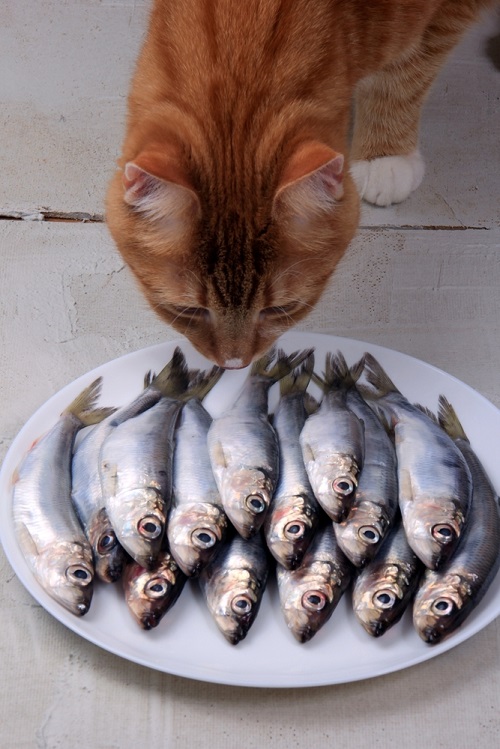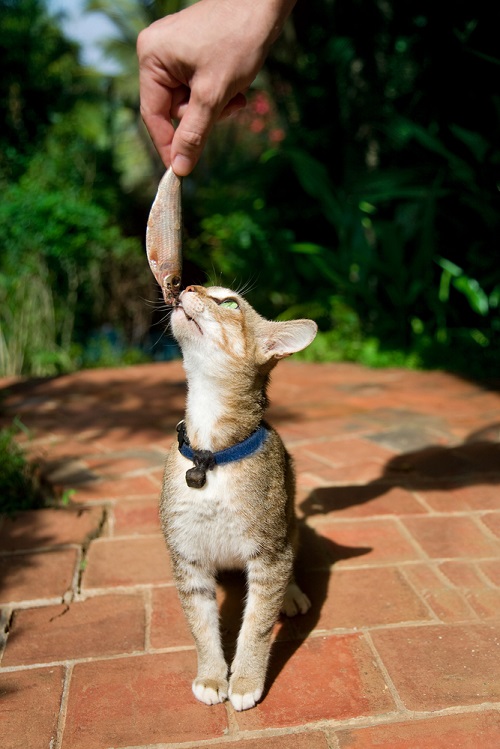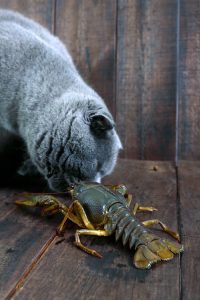Dive into our article—Can Cats Eat Sardines, if your kitty loves seafood, and find out if sardines should be on its menu!
Cats are notorious for being picky eaters, but there are certain foods that they simply can not resist. One such food is sardines, a small, oily fish that is packed with nutrients. The question is—Can Cats Eat Sardines?
In this article, we will take a look at the benefits and risks of feeding sardines to cats, as well as tips on how to do it properly to keep your kitty happy and healthy. So if you are a cat owner curious about adding some fish to your pet’s diet, read on!
Can Cats Eat Raw Fish? Find out here
What Are Sardines?

Sardines are small, oily fish used as a food source for both humans and animals. Commonly canned, they are considered a popular and affordable source of protein. Sardines are also rich in nutrients like omega-3 fatty acids, vitamin D, and calcium. Rich in flavor, this fish is often used in salads, sandwiches, and other dishes.
Can Cats Eat Sardines?
While sardines are a popular food for humans, you may wonder if they are safe and healthy for your feline friend to consume. We are glad to tell you that, Yes, cats can eat sardines!
They are a great source of nutrition for felines and can help improve their overall health. However, it is important to feed them sardines in moderation, ensure that they are properly prepared, and do not contain any added salt or seasoning that could be harmful to cats.
Are Sardines Toxic For Cats?

No, sardines are not toxic for cats. However, it is important to avoid sardines that are packed in salt, brine, or flavored oils, as these can be harmful to a cat’s health.
You must also remember that excessive consumption of sardines can lead to health issues such as mercury poisoning and imbalanced nutrition, as cats require a diverse diet for optimal well-being. Feeding cats small portions of sardines occasionally as a treat or supplement rather than a primary food source can help mitigate potential risks while providing nutritional benefits.
Do Sardines Contain Any Nutritional Value For Cats?
Yes, sardines contain several nutritional elements that can benefit cats in various ways.
- Omega-3 Fatty Acids: These small fish contain significant amounts of EPA and DHA, which are vital for maintaining healthy skin, coat, joints, and reducing inflammation.
- Taurine: As a natural source of taurine, an amino acid essential for cats’ heart, vision, and reproductive health, sardines provide an important dietary requirement for felines, which cannot synthesize taurine on their own.
- Protein: Complete with all essential amino acids required by cats, the high-quality protein found in sardines supports tissue repair, growth, and overall health.
- Vitamins and Minerals: These fish also contain various vitamins and minerals necessary for cats, including vitamin D, B12, and calcium. Vitamin D aids in calcium absorption and bone health, while B12 plays a role in nerve function and red blood cell production. Calcium is essential for maintaining strong bones and teeth.
- Low in Mercury: Another advantage is the low mercury content in sardines. Being low on the food chain and having a short lifespan results in lower mercury accumulation than larger fish species. As mercury poisoning can cause severe health issues in cats, sardines are a safer choice among fish options.
Risks Of Feeding Sardines To Cats
There are some risks associated with feeding sardines to cats, although they are generally considered safe if prepared properly. Here are some potential risks to keep in mind:
- Bones: Sardines contain small, edible bones that can be a choking hazard for cats or cause intestinal blockages if consumed in large quantities.
- Mercury: As with all fish, sardines can contain trace amounts of mercury, which can be harmful if consumed in large amounts.
- Added ingredients: Some sardines may be packed in oils, sauces, or seasonings that can be harmful to cats. It is important to choose plain sardines packed in water.
- High in fat: Sardines are high in fat, which can lead to weight gain and digestive problems if fed in excess.
- Allergies: Like any new food, cats can develop allergies to sardines. It is important to monitor their reactions and introduce sardines gradually.
Safe Ways To Feed Sardines To Your Cat

- Choose plain sardines packed in water without any added salt, seasoning, or sauces.
- Remove any bones from the sardines before serving them to your cat.
- Introduce sardines gradually into your cat’s diet to avoid any potential allergies or digestive issues.
- Serve sardines as an occasional treat and not as a staple in your cat’s diet to avoid overfeeding and potential health risks.
- Consult with your veterinarian before adding sardines or any new food to your cat’s diet to ensure that it is safe and appropriate for your cat’s health.
Can Cats Eat Sardines? Quick Takeaways!
- Cats can eat sardines in moderation as they are a great source of nutrition for felines and can help improve their overall health.
- Sardines are not toxic for cats, but it is important to avoid sardines packed in salt, brine, or flavored oils.
- Sardines contain essential nutrients like protein, omega-3 fatty acids, vitamins, and minerals, which can benefit cats in various ways.
- Potential risks of feeding sardines to cats include digestive issues by consuming bones, mercury, added ingredients, and the possibility of allergies.
- Safe ways to feed sardines to your cat include choosing plain sardines packed in water, removing any bones, and serving them as an occasional treat.
- Refer to a veterinarian for more information about your cat’s specific dietary needs.



